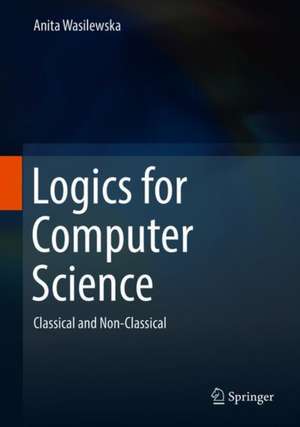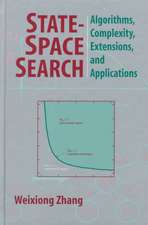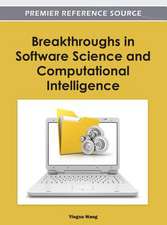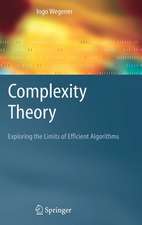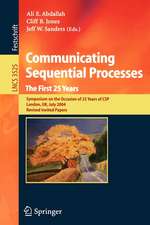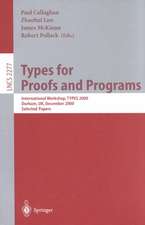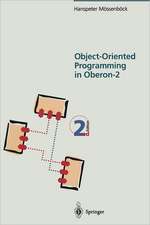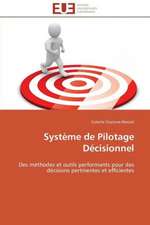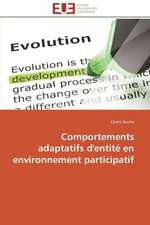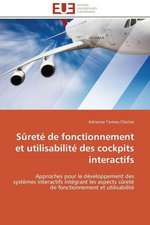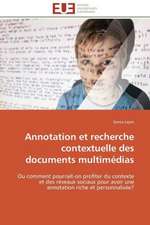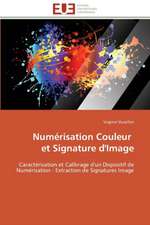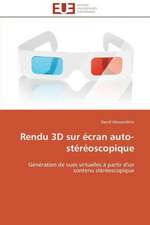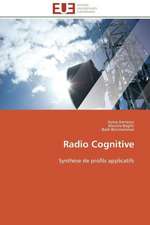Logics for Computer Science: Classical and Non-Classical
Autor Anita Wasilewskaen Limba Engleză Hardback – 13 noi 2018
Providing an in-depth introduction to fundamental classical and non-classical logics, this textbook offers a comprehensive survey of logics for computer scientists. Logics for Computer Science contains intuitive introductory chapters explaining the need for logical investigations, motivations for different types of logics and some of their history. They are followed by strict formal approach chapters. All chapters contain many detailed examples explaining each of the introduced notions and definitions, well chosen sets of exercises with carefully written solutions, and sets of homework.
While many logic books are available, they were written by logicians for logicians, not for computer scientists. They usually choose one particular way of presenting the material and use a specialized language. Logics for Computer Science discusses Gentzen as well as Hilbert formalizations, first order theories, the Hilbert Program, Godel's first and second incompleteness theorems and their proofs. It also introduces and discusses some many valued logics, modal logics and introduces algebraic models for classical, intuitionistic, and modal S4 and S5 logics.
The theory of computation is based on concepts defined by logicians and mathematicians. Logic plays a fundamental role in computer science, and this book explains the basic theorems, as well as different techniques of proving them in classical and some non-classical logics. Important applications derived from concepts of logic for computer technology include Artificial Intelligence and Software Engineering. In addition to Computer Science, this book may also find an audience in mathematics and philosophy courses, and some of the chapters are also useful for a course in Artificial Intelligence.
Preț: 786.36 lei
Preț vechi: 982.95 lei
-20% Nou
Puncte Express: 1180
Preț estimativ în valută:
150.48€ • 160.90$ • 125.46£
150.48€ • 160.90$ • 125.46£
Carte tipărită la comandă
Livrare economică 17 aprilie-01 mai
Preluare comenzi: 021 569.72.76
Specificații
ISBN-13: 9783319925905
ISBN-10: 3319925903
Pagini: 540
Ilustrații: X, 535 p. 1 illus.
Dimensiuni: 178 x 254 x 33 mm
Greutate: 1.16 kg
Ediția:1st ed. 2018
Editura: Springer International Publishing
Colecția Springer
Locul publicării:Cham, Switzerland
ISBN-10: 3319925903
Pagini: 540
Ilustrații: X, 535 p. 1 illus.
Dimensiuni: 178 x 254 x 33 mm
Greutate: 1.16 kg
Ediția:1st ed. 2018
Editura: Springer International Publishing
Colecția Springer
Locul publicării:Cham, Switzerland
Cuprins
1: Introduction: Paradoxes and Puzzles.- 2: Introduction to Classical Logic.- 3: Propositional Semantics: Classical and Many Valued.- 4: General Proof Systems: Syntax and Semantics.- 5: Hilbert Proof Systems: Deduction and Completeness Theorems for Classical Propositional Logic.- 6: Automated Proof Systems.- 7: Introduction to Intuitionistic and Modal Logics.- 8: Classical Predicate Semantics and Proof Systems.- 9: Completeness and Deduction Theorems for Classical Predicate Logic.- 10: Predicate Automated Proof Systems.- 11: Formal Theories and Godel Theorems.
Recenzii
“This textbook is intended to serve as a first introduction to logic for undergraduate students, especially for those majoring in computer science or a related field. … The text is very reader-friendly, with plenty of explanations. … The problems will provide readers with ample opportunity to hone their skills.” (Katalin Bimbó, Mathematical Reviews, October, 2019)
Notă biografică
Professor Anita Wasilewska has been teaching a "logic for computer science" class for many years, using presentation slides for ease of comprehension. She earned her Master Degree in Computer Science and Ph.D. in Mathematics from Warsaw University, where she consequently was a faculty of the Mathematics Department from 1967 to 1983. She came to the United States in 1980 as a visiting Assistant Professor in Mathematics at Wesleyan and Yale Universities in Connecticut, before joining Stony Brook’s Department of Computer Science in 1986.
She has also published papers, books, and edited books in many domains ranging from Classical and Non-Classical Logics, Automated Theorem Proving, Formal Languages, Theory of Programs, Foundations of Rough Sets in which she was one of the pioneers, to generalized Fuzzy and Rough sets, and Machine Learning.
Textul de pe ultima copertă
The theory of computation is based on concepts defined by logicians and mathematicians. Logic plays a fundamental role in computer science, and this book explains the basic theorems, as well as different techniques of proving them in classical and some non-classical logics. Important applications derived from concepts of logic for computer technology include Artificial Intelligence and Software Engineering.
Providing an in-depth introduction to fundamental classical and non-classical logics, this textbook offers a comprehensive survey of logics for computer scientists. Logics for Computer Science contains intuitive introductory chapters explaining the need for logical investigations, motivations for different types of logics and some of their history. They are followed by strict formal approach chapters. All chapters contain many detailed examples explaining each of the introduced notions and definitions, well chosen sets of exercises with carefully written solutions, and sets of homework.
Includes links to the author's companion lecture slides for each chapter: several hundred presentations which summarize the ideas presented in the chapters for ease of comprehension.
Caracteristici
Offers a comprehensive, intuitive understanding of different logics and discusses some of their applications to Computer Science, and also makes readers understand the need of, and existence of Symbolic Logic as a scientific field Book chapters are as self-contained as possible so that they can be combined in different sequences depending of the level of a course one wants to teach it and of material one wants to teach, whether in Computer Science, Mathematics, or Artificial Intelligence Includes long intuitive introductions to each chapter, many detailed examples explaining each of the introduced notions and definitions, and well-chosen sets of exercises with carefully written solutions. It also contains samples of quizzes and tests after each chapter Includes links to the author's companion lecture slides for each chapter: several hundred presentations which summarize the ideas presented in the chapters for ease of comprehension Includes supplementary material: sn.pub/extras
